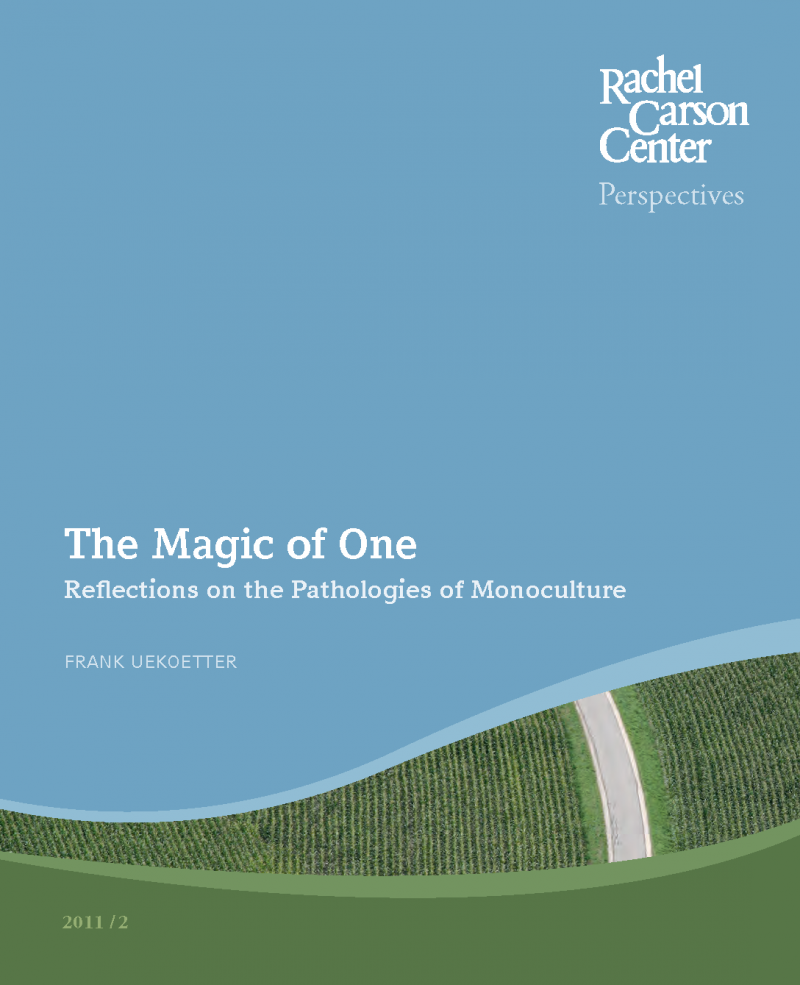About this issue
Most of our food comes from monocultures, despite the fact that the case for biodiversity has grown stronger over time. In this issue of RCC Perspectives, Frank Uekoetter addresses monocultures as more than a cultural phenomenon, considering the science, economics, and technology behind the trend. He shows how monoculture in Germany became hegemonic despite significant doubts and reservations among farmers, advisors, and scientists. Moving chronologically, Uekoetter considers how the introduction and use of chemical fertilizers affected German agriculture and how World War One affected agricultural development. However, he locates the decisive transformations after 1945, with the rise of large-scale animal production, of corn, and of liquid manure technology.
How to cite: Uekoetter, Frank, “The Magic of One: Reflections on the Pathologies of Monoculture,” RCC Perspectives 2011, no 2. doi.org/10.5282/rcc/5584.

Content


